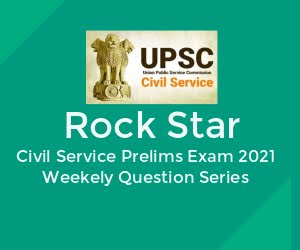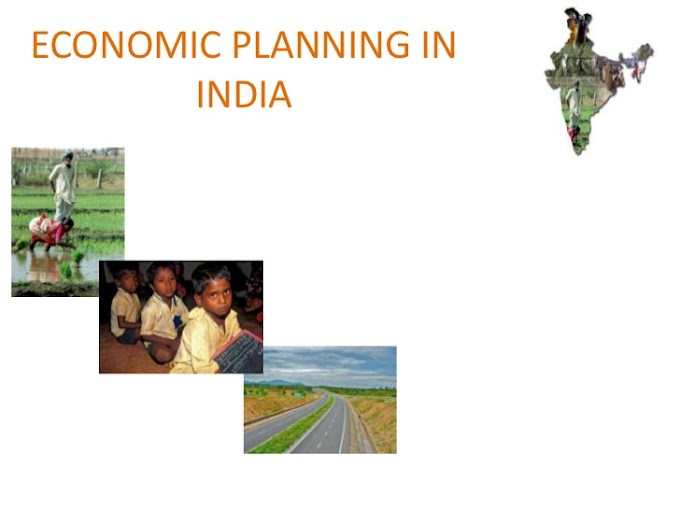Composition is determined by the President.
The members of the UPSC are appointed for a term of 6 yrs, or till they attain 65 yrs of age.
Can resign earlier to the President.
President can remove them by issuing orders only the SC makes such a recommendation on the basis of an inquiry.
Members of the UPSC are no eligible for employment by the govt., after retirement.
Functions of UPSC:
- To conduct exams for appointment to services under the Union.
- Advise the President (not obligatory on him) in maters relating to appointments, promotions & transfers from one service to another of civil servants.
- All disciplinary matters affecting a person in the service of Union.
- Matters regarding award of pension & awards in respect to injuries sustained during service under the government.
- Maintains continuity of administration.
The Finance Commission is constituted by the President of India every fifth year or at such an early time as he considers necessary.
It consists of a Chairman & 4 other members. They are eligible for re – appointment.
The Chairman is selected from persons who have had experience in public affairs, while the members are selected from the persons who:
- Qualified to be appointed judges of High Court.
- Have special knowledge of the finance & accounts of govt.
- Wide experience in financial matter & in administration.
- Have special knowledge of Economics.
Presently 12th Finance Commission is working. (C. Rangarajan – Chairman).
Functions
- To recommend to the President distribution of net proceeds of the taxes which are divisible between Union and States
- To recommend the principles this should govern the Grants of the revenues of the State out of the Consolidated Fund of India.
- The recommendations made by it are only of advisory nature and hence, not binding on the Government.
- To tender advice to the President on any other matter referred to the Commission in the interest of sound finance.
Anti – Defection Law
To curb political defection, added by 52nd amendment in 1985.
Any Member of Parliament belonging to any political party can be disqualified.
- If he voluntarily gives up the membership of that political party.
- If he votes or abstains from voting according to the party ‘whip’.
Any independent member can be disqualified if he joins any political party after election.
Any nominated member can be disqualified if he joins any political party after the expiry of 6 month from the date of his joining.
This law shall not apply:
- To a situation of ‘merger’ in which at least 2/3 members of any party are involved.
- To a person who resigns membership of his party after becoming the Presiding officer of the house & he rejoins the party after laying down that office.
Recently, the Supreme Court in a significant ruling held that a Member of Parliament or a State Legislature can be disqualified for defying a whip only on two counts, that is voting on a motion of confidence or no-confidence and when the matter relates to the programme and policies of that political party.
Official Language
The Constitution declared Hindi as the official language of India.
However, it permitted the use of English for official purposes for a period of 15 years from the commencement of the Constitution.
The Parliament was authorized to allow the use of English even beyond this period.
In 1964, the Parliament passed the Official Language Act, 1964, which permitted the use of English as official language up to Jan. 26, 1971.
Again, through the Official Language (Amendment) Act, 1967, it was provided that use of English would continue indefinitely.
First Administrative Reforms Commission
- Constituted in 1964.
- Morarji Desai, the former Prime Minister of India was its Chairman for its initial term.
- Kengal Huuumanthaiya, the former chief minister of Karnataka was its chairman for a brief period in 1967 at the end of its term.
- First Report - Right to Information: Master Key to Good Governance - June 2006.
- Second Report - Unlocking Human Capital: Entitlements and Governance a case study - July 2006.
- Third Report - Crisis Management: From Despair to Hope - September 2006.
- Fourth Report - Ethics in Governance -12 February, 2007.
The Constitution provides for an independent election commission to ensure free and fair election to the Parliament, the state legislature and the offices of President and Vice – President.
Consists of Chief Election Commissioner + 2 Election Commissioners. They all enjoy equal powers.
The Chief Election Commissioner is appointed by the President and the other Election Commissioners are appointed by the President after consultation with the Chief Election Commissioner.
Article 324 also provides for the appointment of Regional Commissioners at the time of General Elections after consultation with the Election Commission.
Election Commissioners are appointed for a term of 5 yrs. They are not eligible for re – appointment. Also, they cannot hold any office of profit after their retirement. Article – 324 says that there is no upper limit on the no. of Election Commissioners.
In 1990, Dinesh Goswami Committee recommended that the Election Commission be a 3 – membered body. Also, at its constitution Chief Justice & leader of the opposition ought to be consulted. (Thus Art – 324 was amended).
The Chief Election Commissioner can be removed from office before expiry of his term by the President on the basis of a resolution passed by the Parliament by a special majority on the ground of proven misbehavior or incapacity (same as that of Judge of Supreme Court).
The other Election Commissioners maybe removed by the President on the recommendation of the Chief Election Commissioner.
Chief Election Commissioners of India
| Name | Tenure | |
| From | To | |
| Sukumar Sen | 21.03.1950 | 19.12.1958 |
| K V.KSundaram | 20.12.1958 | 30.12.1967 |
| S.P. Sen Verma | 01.10.1967 | 30.09.1972 |
| Dr. Nagendra Singh | 01.10.1972 | 06.02.1973 |
| T. Swaminathan | 07.02.1973 | 17.06.1977 |
| S.L. Shakdhar | 18.06.1977 | 17.06.1982 |
| R.K. Trivedi | 18.06.1982 | 31.12.1985 |
| R.V.S. Peri Shastri | 01.01.1986 | 25.11.1990 |
| Smt. V.S. Rama Devi | 25.11.1990 | 12.12.1990 |
| T.N. Seshan | 12.12.1990 | 11.12.1996 |
| M.S. Gill | 12.12.1996 | 13.06.2001 |
| J.M. Lingdoh | 14.06.2001 | 16.02.2004 |
| T.S. Krishnamurathy | 17.02.2004 | 16.05.2005 |
| B.B. Tandon | 16.05.2005 | 29.06.2006 |
| N. Gopalaswamy | 30.06.2006 | Till date |





